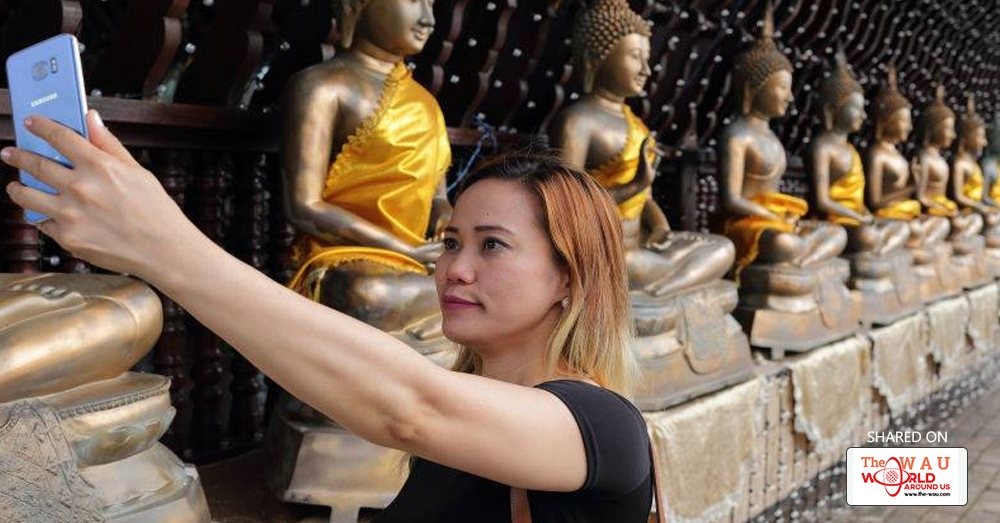The rise of the selfie has driven a rift into society, bringing up a surprising number of issues over gender, class, age, religion, and race. Wired 's Jason Parham explores some of these in "When the Selfie Turns Sacrilegious," an essay on taking selfies in sacred or serious places like mosques and art installations.
Parham acknowledges the power of the selfie to "will yourself into a world that has done its very best to destroy you." But when visiting Morocco's Hassan II Mosque, he felt uncomfortable at the number of fellow tourists taking selfies as locals went to prayer, and noticed that many of the locals seemed to feel the same, "pointing and commenting on the growing pageantry of solipsism."
While opinions vary widely, those who look down on selfies at sacred spaces will often call them out online. When someone has decided your selfie is in poor taste, the grey area disappears. Even if you think you're not being offensive, you might find yourself in a series of graphic Photoshopped Holocaust photos , in a horrified local blog post , or on a BuzzFeed list of regrettable selfies (most of which have been deleted out of shame). If you're lucky, you might get to explain yourself to ABC News . If you're Beyonce, you might provoke a thoughtful essay in the New Republic .
While some of the cases above feel clearly out of line (a Holocaust memorial is not an appropriate place to show off your flexible figure ), it's also reductive to assume every selfie taker is narcissistic or disrespectful. As Gizmodo's Bryan Lufkin and Jezebel's Dodai Stewart noticed, people don't just take selfies in front of others' tragedy, but in front of their own harrowing moments. There are many legitimate reasons: Sometimes it's to assert strength in times of crisis, sometimes it's to emotionally process tragedy, sometimes it's to tell friends and family you made it through.
Remember that not all of this will come through to the strangers who happen upon your photos. And it doesn't give you a free pass to disrupt someone's sacred space. So before you take pictures at a memorial or a place of worship, consider how it will affect the people around you. If you're unsure, ask a representative of the site. And if you take a chance, be prepared to explain yourself to the internet.
Share This Post















